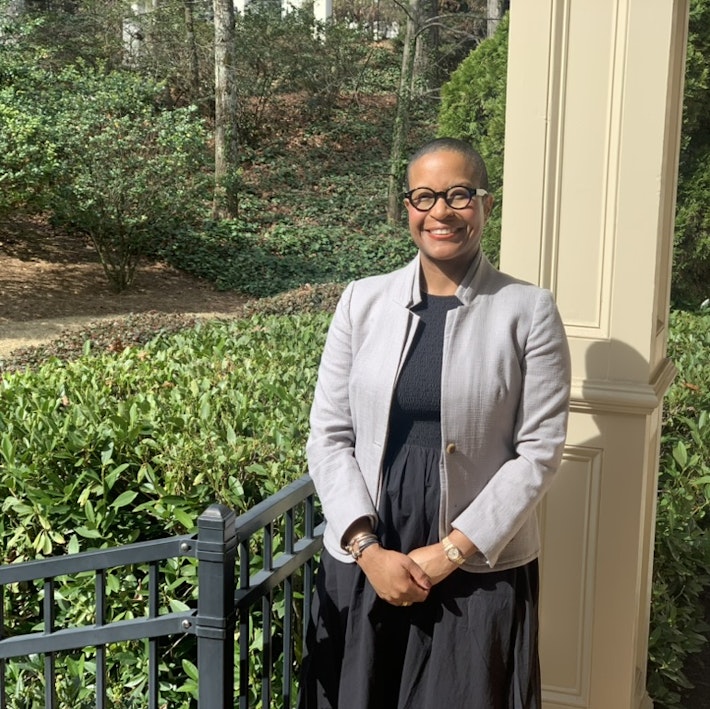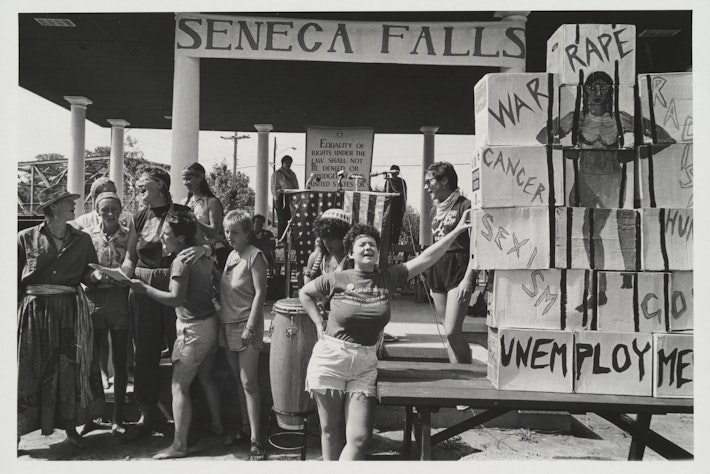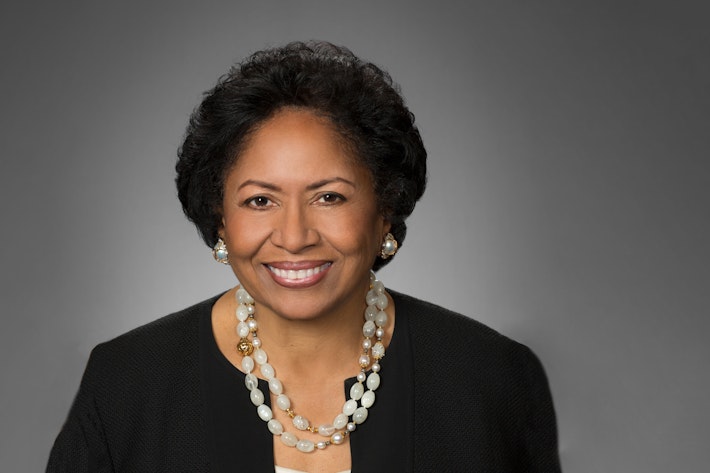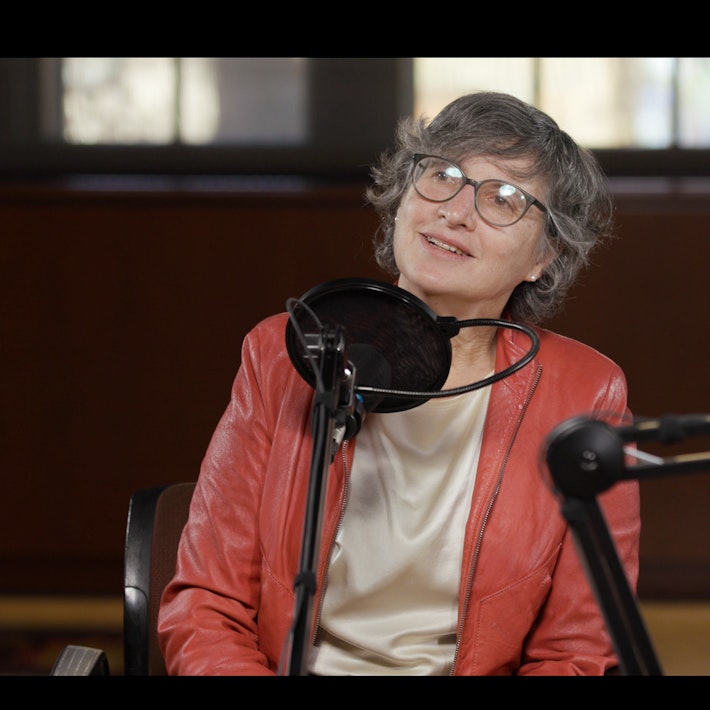Past, Present Converge in Slavery Initiative

Dean Brown-Nagin: “I believe our work—when it is released—will speak for itself”
Tomiko Brown-Nagin, dean of Harvard Radcliffe Institute and chair of the Presidential Committee on Harvard and the Legacy of Slavery, delivered a brief update on the committee’s work in a statement released March 19.
Following a March 9 event—“Harvard & the Legacy of Slavery: Reckoning with the Past to Understand the Present”—I received a number of thoughtful questions concerning the work of the Harvard & the Legacy of Slavery initiative. The fact that so many members of the Harvard community are invested in this effort and are thinking about how best to address the legacies of slavery is deeply encouraging, and I am grateful for their engagement.
Among the many questions and comments that I received, concerns emerged related to the initiative’s pace and its grounding in historical research. Our charge is to grapple with a deeply meaningful and complex set of issues, and I am eager to share more about the work we have under way. But I have also given the committee—made up of scholars renowned for their work on racial justice, structural inequality, slavery, human rights, and more—my promise that I will ensure that they have time to carry out our mission thoroughly and thoughtfully. Despite the unprecedented challenges of COVID-19, we have stuck to an aggressive timeline, and we aim to finish the committee’s research and share it, along with recommendations for action, in the winter of 2021–2022. I believe our work—when it is released—will speak for itself.
No one is more eager to share our findings. I say this not only as chair of the committee, but also as a member of this University community and a descendant of enslaved people, born and raised in the deep South. I am personally committed to this mission and to taking the time to get it right. In my childhood, I observed the legacies of slavery and Jim Crow every day, and these experiences shaped my professional path, my decision to train as a lawyer, my career exploring issues of race and justice through history, and my commitment to advancing equity and opportunity at Harvard.
As for the contemporary legacies of slavery on our campus, while our work is necessarily grounded in history, it is important to note that the committee is very much engaged in work with bearing on the present. My colleagues, Professors William Julius Wilson and Anthony Abraham Jack, for example, are working to understand and document the experiences at Harvard of African American students descended from enslaved people as they cope with the confluence of a racial reckoning, public health crisis, and economic distress. We are also funding wide-ranging student research and creative projects, many of which grapple with contemporary legacies of slavery, and the public programming organized by the initiative has focused very much on the present: for example, the recent programs “The Impact of 2020 on Higher Education: Colleges, COVID-19, and a Time of Racial Reckoning,” “The Enduring Legacy of Slavery and Racism in the North,” and “American Policing and Protest.” Next month, we will gather with community leaders and experts for a program titled “Racial Inequity and Housing Instability in Boston: Past, Present, and Future.”
The legacies of slavery and racism that shadow our society and our University reflect a complicated history. These dynamics did not emerge overnight, nor will they be quickly disentangled. I ask members of our community to give us time equal to the magnitude and complexity of our task.







